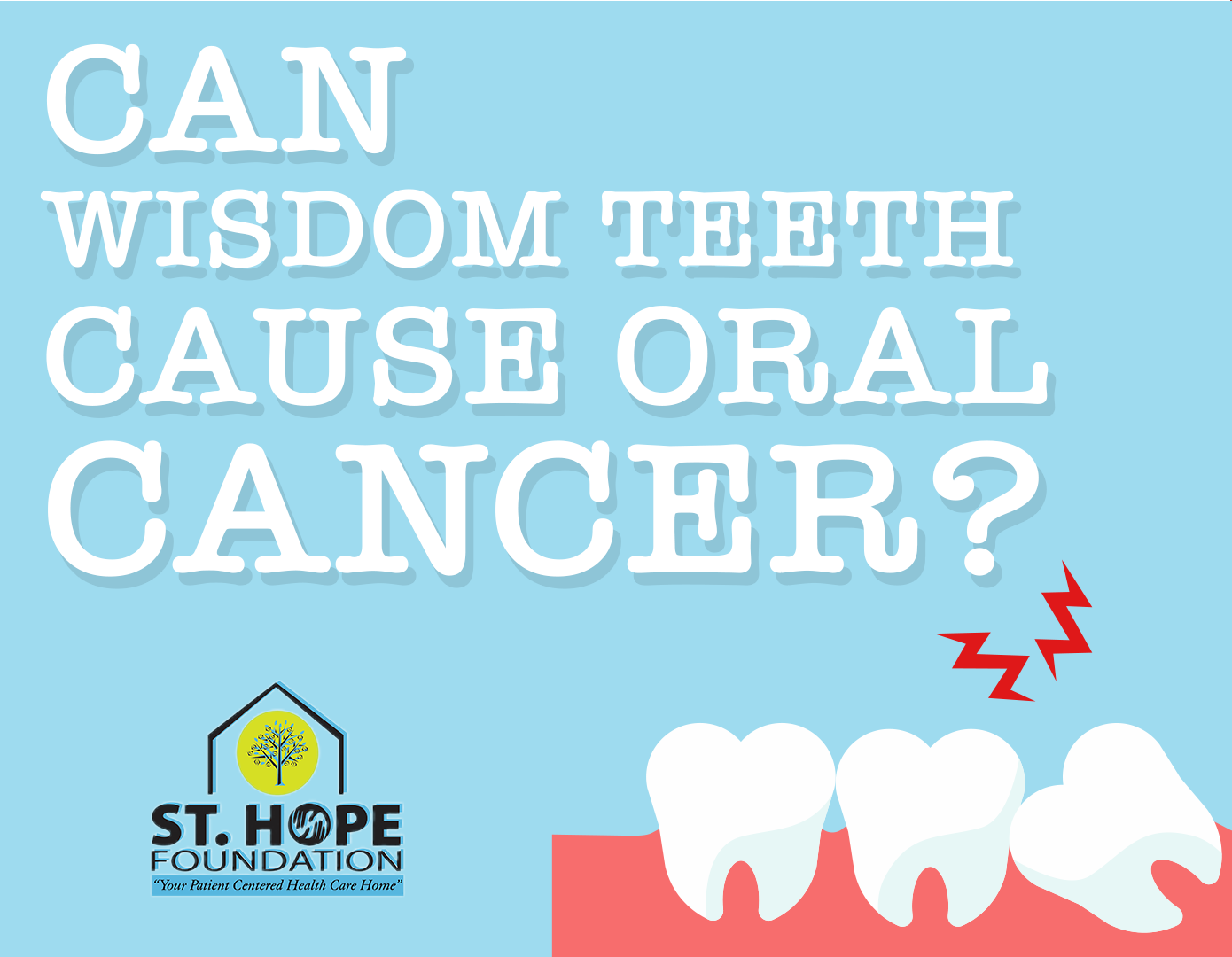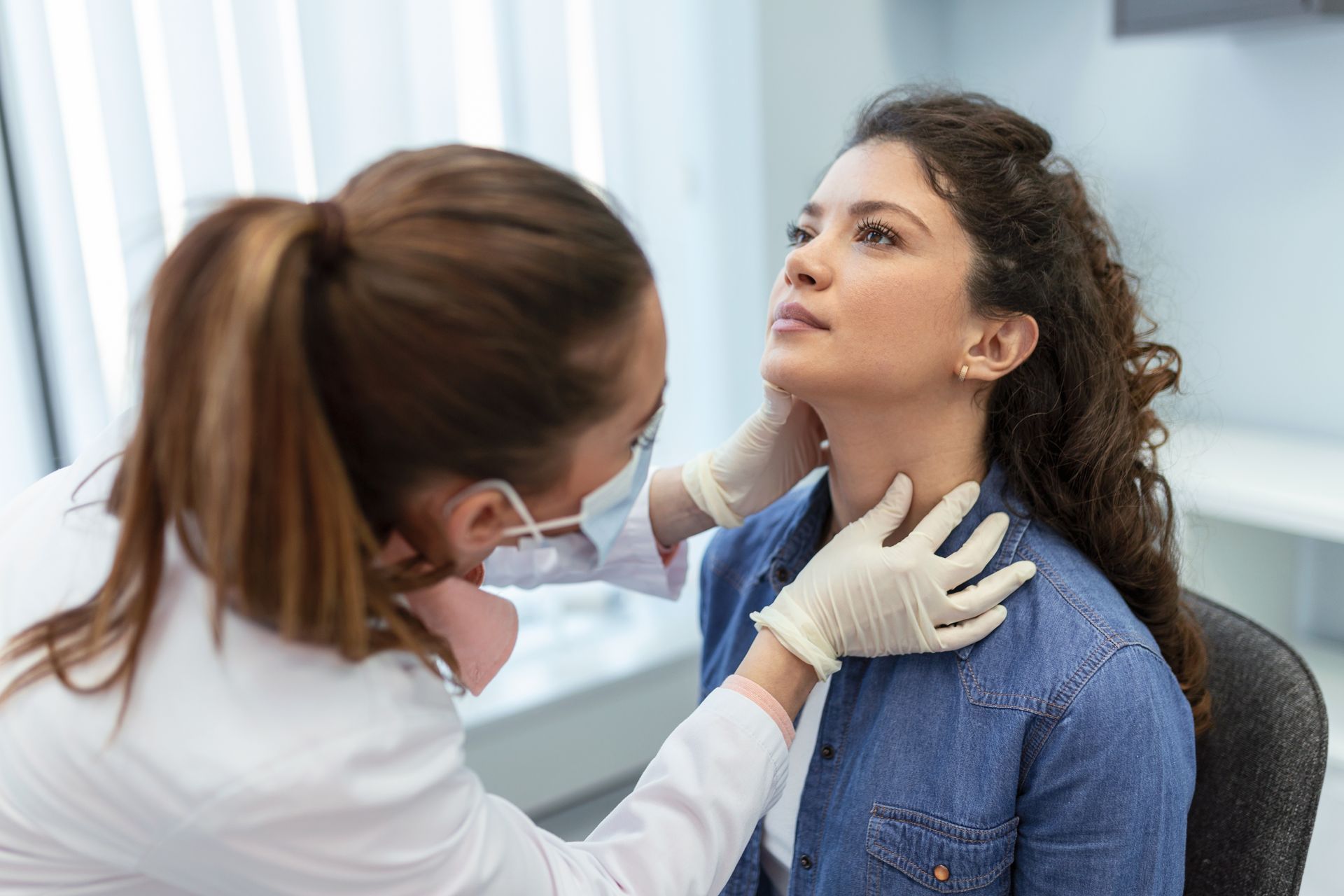Recent Posts
Can Wisdom Teeth Cause Oral Cancer?

Impacted wisdom teeth have the potential to cause cascading problems that may eventually lead to the development of oral cancer. When your wisdom teeth are impacted, meaning they become stuck below the surface of your gums, fluid-filled sacs may develop in the gums. If these sacs aren’t removed, they can ultimately harden into tumors, potentially leading to oral cancer or other serious oral health complications.
If your wisdom teeth are a source of pain and discomfort, it may be in your best interest to have them extracted to avoid more serious issues in the future.
What Are Wisdom Teeth?
Wisdom teeth are the last and widest molars to grow after you lose your decidual teeth (also referred to as baby teeth or milk teeth). Since they usually don’t come in until you’re older (around ages 17 to 21), they are called wisdom teeth. Most people have four wisdom teeth, two on the top and two on the bottom.
Wisdom teeth are considered remnants of past ages when primitive ancestors needed them to grind raw meat and chew plants.
Nowadays, wisdom teeth are for the most part useless, since the contemporary diet consists of cooked and processed foods, for which an extra set of large molars isn’t required.
What Are Impacted Wisdom Teeth?
Since our jaws are significantly smaller than they used to be, it’s easy for wisdom teeth to fail to erupt or erupt incorrectly. This is commonly referred to as impacted wisdom teeth—teeth that haven’t fully erupted through the gums.
They can become impacted due to lack of space in the jaw or because they are growing at an angle. Impacted wisdom teeth can cause pain, swelling, infection and other complications if left untreated.
What May Happen if You Don’t Remove Your Wisdom Teeth?
Pain and Swelling
The most common symptom of impacted wisdom teeth is pain and swelling. These symptoms can range from mild to severe and may be localized to the area of the impacted tooth or may radiate to other areas of your face or jaw.
Gum Disease
Since partially erupted wisdom teeth are difficult to reach with your toothbrush and floss, they can be tricky to clean. The food and bacteria that gets trapped between the gum and impacted teeth can be a breeding ground for gum disease, particularly pericoronitis – an infection of the soft tissue around a partially erupted wisdom tooth.
Crowded Teeth
If your wisdom teeth are impacted or growing in at an angle, they can cause your neighboring teeth to become crowded.
When this happens, you may have difficulties brushing and flossing nearby teeth, which can increase your chances of developing cavities and gum disease.
Damage to Adjacent Teeth
If the tooth is growing at an angle under your gum, it can eat away the roots of its neighbors, causing damage and decay of healthy teeth over time.
Cancerous Cysts
Impacted wisdom teeth can cause cysts in the gum. These cysts can be filled with fluid or solid material, and can grow to a large size. If left untreated, the cysts can damage your jawbone and teeth. In extreme cases, they can turn into cancerous tumors and other serious complications.
Wisdom Teeth Extractions
Having your wisdom teeth extracted can help you avoid the many unpleasant, costly and sometimes dangerous complications these unruly molars can cause.
Even if your wisdom teeth are fully erupted, your dentist may recommend extractions as a precaution to prevent problems in the future.
Depending on how far the teeth are out of our gums, the dentist may perform either a simple extraction or a surgical extraction:
- Simple extraction: A relatively straightforward and minimally invasive procedure that involves the removal of a tooth from its socket in the jawbone.
- Surgical extraction: A more complex procedure that involves making an incision in the gum tissue to expose the underlying bone and ligaments that hold the tooth in place. The dentist will then use special instruments to remove the tooth from its socket.
Patients may experience some swelling and discomfort for a few days after the removal of wisdom teeth. The oral surgeon who performs the removal may prescribe pain medication or antibiotics if necessary. For a speedy recovery, make sure to follow all post-operative instructions carefully.
Additionally, you should avoid eating hard or crunchy foods for at least a week after your extraction in order to give your gums time to heal properly.
Take Advantage of the Affordable Dental Services from the St. Hope Foundation in Houston
Whether you need your teeth cleaned, checked for cavities, whitened or you’re due for X-rays and an oral cancer screening, we offer a broad spectrum of dental services to meet your needs.
With our highly skilled and knowledgeable staff, you can get the dental care you need at a price that fits your budget.
To learn more about our services or to book an appointment, call (713) 778-1300 or send us a message.









